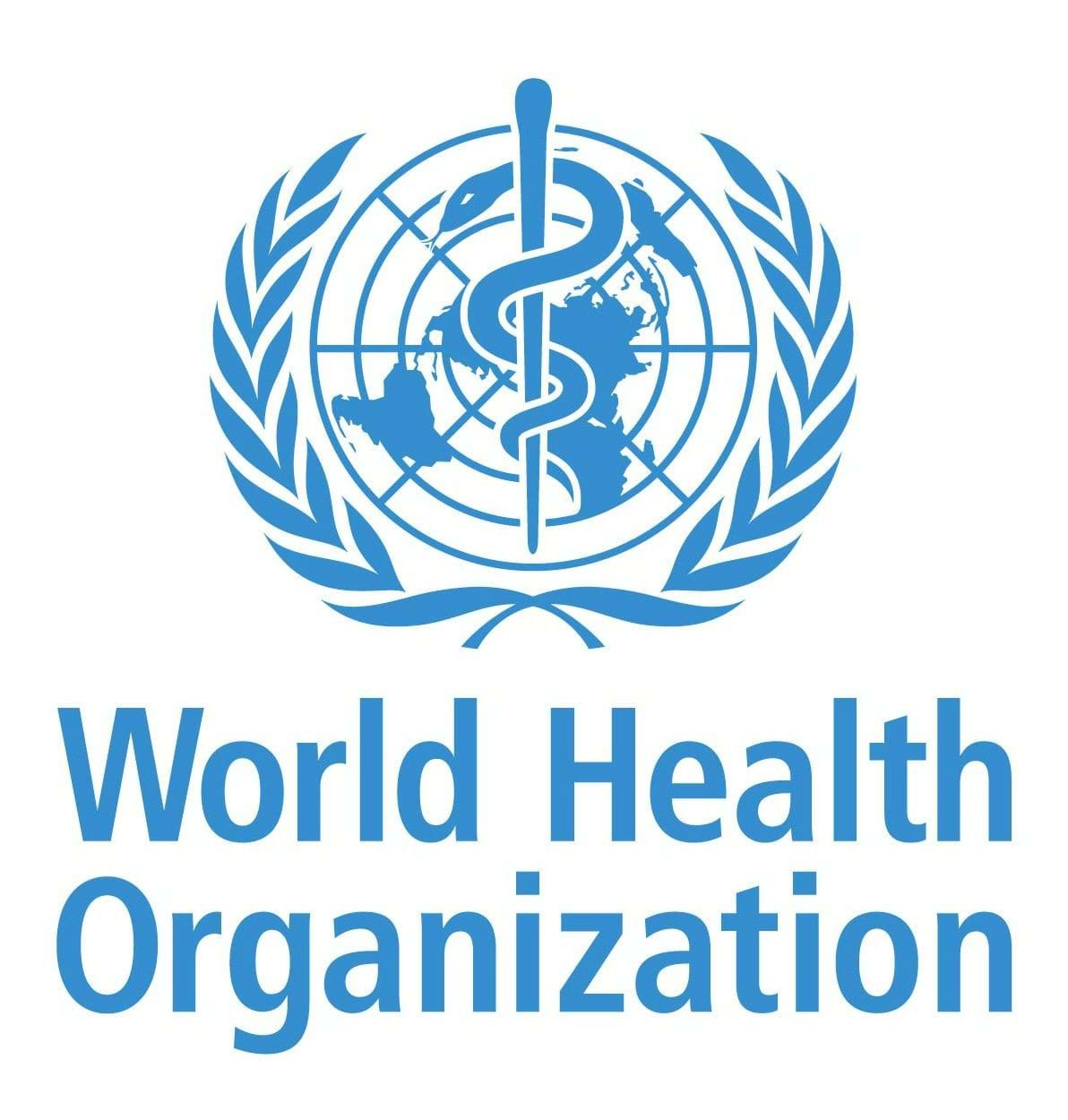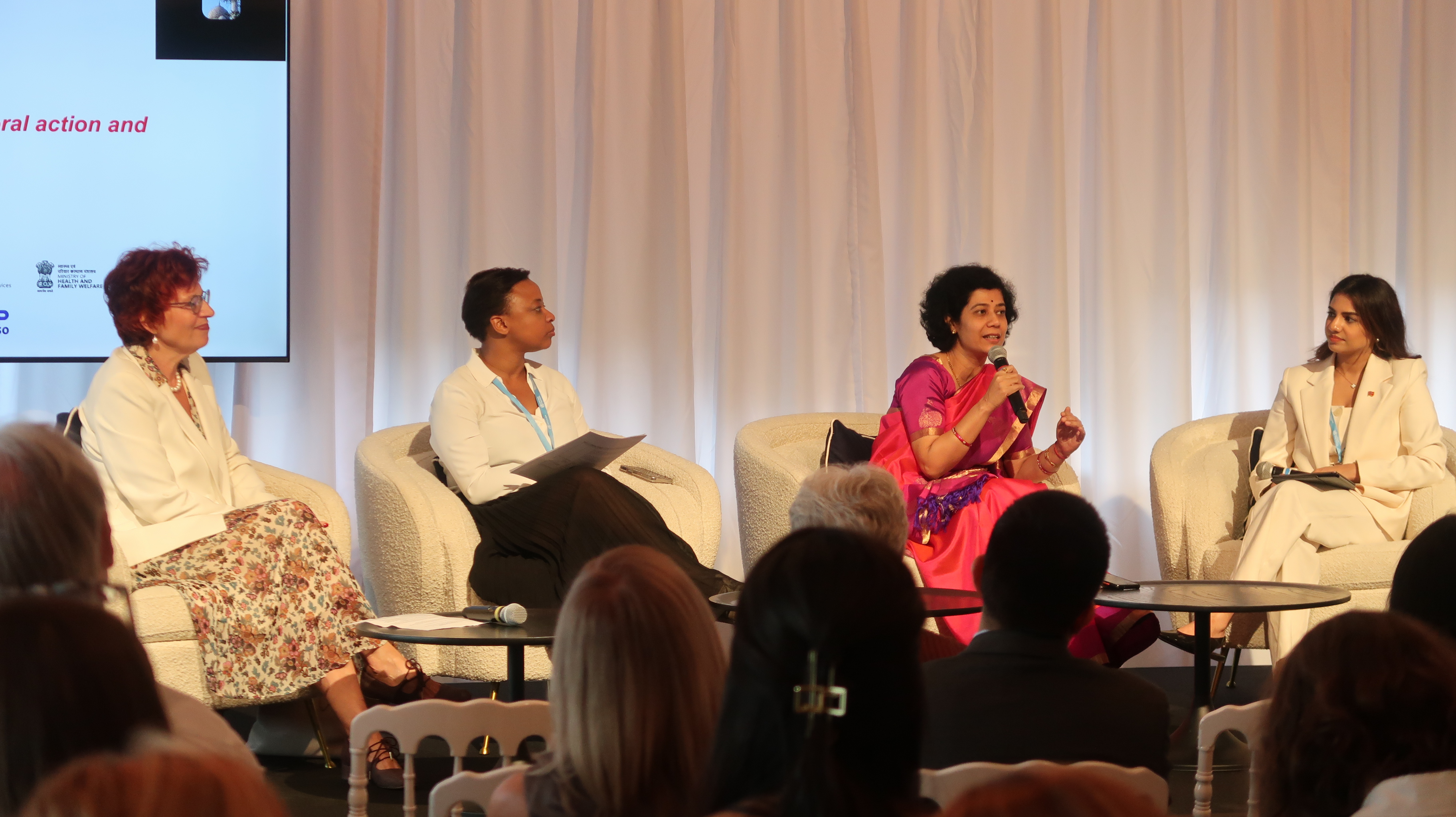Monday 19 May, Geneva, Switzerland
On the sidelines of Day 1 of the 78th World Health Assembly, PMNCH brought together global leaders, youth leaders and advocates, and policymakers to spotlight the urgent need for stronger accountability in adolescent health and well-being.
Co-sponsored by the Governments of India, South Africa, and Norway, and co-hosted by PMNCH, UNICEF, UNFPA, FP2030, and the Global Leaders Network for Women, Children and Adolescents, the event underscored the importance of translating global commitments into real, measurable outcomes for the world’s 1.3 billion adolescents.
With preventable deaths, poor mental health, and lack of access to sexual and reproductive health services still affecting millions of young people worldwide, the event served as a platform to launch new tools and guidance aimed at improving data, strengthening accountability, and accelerating investment in adolescent-focused policies and programs. Participants emphasized that ensuring adolescent health and well-being is not just a moral imperative but a smart investment for sustainable development.
Opening the event, Kenisha Arora (pictured below), Youth Representative to the SDG4 High-Level Steering Committee reflected on the state of the world for today’s young people and pushed high-level guests to reflect on how they were keeping themselves and each other accountable for their commitments to adolescent health. She called on leaders to, “Turn promises into progress and vision into victory” for young people’s health and well-being.

Across the event’s two panels, speakers outlined the need to ensure young people are empowered and meaningfully engaged in policy-making on health and well-being. This included calls to help build credibility for youth-led organizations as well as particular efforts to ensure that the needs of marginalized groups, including adolescent girls and populations in humanitarian and fragile settings, were met and their right to health upheld. “We need to find ways to ensure that we are putting young people in high positions,” David Imbago, Manager, Equity, Gender and Youth, Children’s Investment Fund Foundation (CIFF); and Lancet Commissioner, Adolescent Health and Well-being.
-8-58-48-a-m.png?sfvrsn=52b571cf_1)
| In the image above, from left to right: Dr. Anshu Banerjee, Director, Department of Maternal, Newborn, Child and Adolescent Health & Ageing, WHO; David Imbago, Manager, Equity, Gender and Youth, CIFF; and Rajat Khosla, Executive Director, PMNCH. |
The role of data as a foundational tool for building improved health systems and supporting adolescents’ health and well-being was also a key part of the discussion. The availability and access to data were identified as fundamental in assessing gaps in services for the health and well-being of adolescents and driving policy shifts.
Uswa Malik, Youth Delegate of Norway to the WHO outlined the need for good quality, disaggregated data given, “inequalities often hide in data.” Speakers were also clear that people-centered stories were needed to complement that data. “These are our daughters and our sisters,” noted Ayman Abdelmohsen, Chief of SRHR Branch, Programme Division, UNFPA, “We know the data and the problem, but we need to ensure that the human element is brought in.” He also recalled how stigma has a significant impact on young girls seeking sexual and reproductive health services.

In the image above, from left to right: Dr. Flavia Bustreo, Co-Chair, Lancet Commission on Gender Based Violence; Dr. Lwazi Manzi, Head of Secretariat Global Leaders Network for Women, Children and Adolescent Health; Aradhana Patnaik, Additional Secretary and Mission Director (NHM), Ministry of Health & Family Welfare, Government of India; Uswa Malik, Youth Delegate of Norway to the World Health Organization |
The thread throughout the event was a unified call for stronger partnerships and multisectoral responses to address adolescent health and well-being. Noting the continued siloed approach to health, Kathleen Sherwin, Chief Strategy and Engagement Officer, Plan International, and PMNCH Board Member, looked to solutions and the need to double down on multisectoral partnerships such as PMNCH. While Lwazi Manzi, Head of Secretariat of the Global Leaders Network for Women, Children and Adolescent Health, Private Office of the President of South Africa, outlined how South Africa’s Social Impact Bond has already shown promising results with an embedded rights-based policy approach to adolescent health and well-being that is multisectoral by design.

| In the image above, from left to right: Kathleen Sherwin, Chief Strategy and Engagement Officer, Plan International; Rt Hon. Helen Clark, PMNCH Board Chair; Andrea Studer, CEO, Fondation Botnar; and Luc Laviolette, Head of Secretariat, Global Financing Facility. |
In his closing summary of the event, Rajat Khosla, PMNCH Executive Director, was clear that funding was not the main challenge to the future of adolescents’ health and well-being, but rather the intentionality of the global health and community. “It has to be about justice. It has to be about human rights.”
-9-27-06-a-m.png?sfvrsn=7d7f06fa_1)
| In the image above, from left to right: Ayman Abdelmohsen, Chief of SRHR Branch, Programme Division, UNFPA; Samukeliso Dube, Executive Director, FP2030; Yasmin Ali Haque, Director, Health (a.i.), UNICEF; and Saima Wazed, Regional Director for the South-East Asia Region, WHO. |
This event marked the second of two Lives In the Balance side events at WHA78, and more information on women's, children’s, and adolescents’ health can be found here.
Watch the recording

.png?sfvrsn=6d0e27cd_1)



